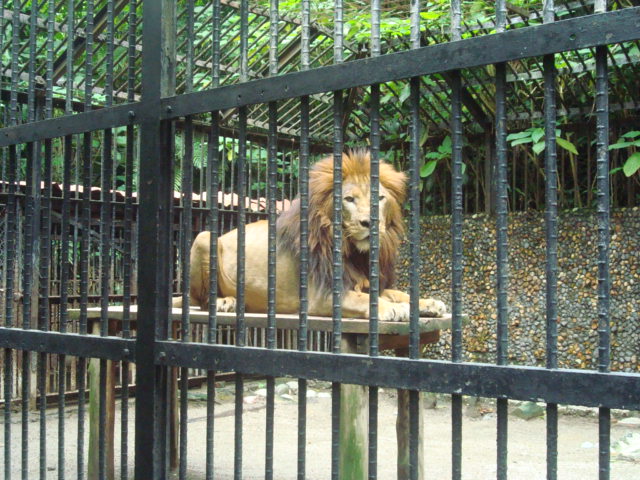Photo taken at the Simon Bolivar Zoo
Costa Rica outlaws public zoos
In a historic move, Costa Rica announced recently that it would close its two remaining state zoos, more than a decade after it passed a law to ban keeping wild animals in government-sponsored captivity but was met with legal blowback. This closure affects the Simón Bolívar Zoo and the Santa Ana Conservation Center.
The transition, which is already underway involves relocating 287 animals to a rehabilitation center where their health will be assessed. According to Franz Tattenbach, the minister of environment and energy, some animals will be reintroduced to the wild, while others will be placed in sanctuaries if they are deemed unfit for release. “Captivity is only justified when animals cannot return to the forest for either physical or behavioral problems that prevent them from living in freedom,” Tattenbach said in a statement.
Bill would ban wildlife killing contests on public lands
On May 22, more than 16 members of the House of Representatives introduced legislation that would prohibit organizing, sponsoring, conducting or participating in wildlife killing contests on more than 500 million acres of U.S. public lands.
Wildlife killing contests are organized events during which participants compete for cash or prizes by killing the most, the largest or the smallest animals over a certain period of time. Each year thousands of native carnivores and other wildlife — including coyotes, foxes, bobcats, raccoons, rabbits, prairie dogs, mountain lions and wolves — are killed during these cruel, senseless competitions.
The Prohibit Wildlife Killing Contests Act of 2024, introduced by Rep. Steve Cohen (D-Tenn.) and other congressional leaders, would require the Bureau of Land Management, Bureau of Reclamation, National Park Service, U.S. Fish and Wildlife Service and U.S. Forest Service to enact regulations banning wildlife killing contests within one year of enactment of the law.
“America’s wildlife play a special role in the natural environment and in a healthy ecosystem,” said Rep. Cohen. “Killing apex predators and other targets for what some deem ‘sport’ is both cruel and unnecessary. These contests serve no legitimate wildlife-management purpose and ending them is the right thing to do.”
We couldn’t agree more.
Ten states — Arizona, California, Colorado, Maryland, Massachusetts, New Mexico, New York, Oregon, Vermont and Washington — have already outlawed wildlife killing contests within their borders.
Pupfish makes a comeback
Late last month, the National Park Service announced that the spring population of the pupfish, who call Death Valley home, had grown to 191, the highest in 25 years, according to a count conducted twice a year by scuba divers. Because of seasonal fluctuations in food sources, fall counts tend to be higher, meaning that this year’s tally could be a watershed.
“If, this fall, we have over 300, I’ll be really ecstatic,” said Kevin Wilson, an aquatic ecologist at the National Park Service who has studied the Devils Hole pupfish for more than two decades. (Devils Hole is officially part of Death Valley National Park, most of which is in California.)
If the pupfish census does not seem especially impressive, consider that there were only 35 pupfish left in Devils Hole in 2013, prompting worries about extinction. For now, that danger has receded ever so slightly.
Colombia bans bullfighting
Centuries of the cruel blood sport of bullfighting will come to an end in Colombia after its Congress passed a bill that will ban bullfighting across the South American country starting in 2027.
That’s too long to end the centuries-old practice of taunting and torturing bulls to death, but cheers to the Colombian Congress and President Gustavo Petro for listening to the calls of animal rights activists and adding their nation to the growing list of countries that have banned bullfighting completely, including Argentina, Brazil, Chile, Cuba, Nicaragua, Panama, Paraguay, Puerto Rico and Uruguay.
Bullfighting is still legal in Spain, Venezuela, Ecuador, Peru, and Mexico. Some cities in Spain have banned it, including Calonge, Tossa de Mar, Vilamacolum and La Vajol. Several states in Mexico have banned bullfighting, and about 70 percent of Mexicans want it banned nationally. In France, bullfighting is legal only in the south in areas bordering Spain and in Mediterranean coastal provinces.

